Table of Contents
ToggleIf you’ve ever felt like you’re trying to herd cats while juggling flaming torches, you’re not alone. Managing ADHD can feel like navigating a complex maze, especially when it comes to productivity. But fear not. With the right ADHD productivity hacks, you can turn that chaos into a well-orchestrated symphony of focus and efficiency. Grab your favorite drink, get comfy, and let’s jump into some effective strategies that will help you harness your unique brain power.
Understanding ADHD and Its Impact on Productivity

ADHD, or Attention-Deficit/Hyperactivity Disorder, affects millions of people worldwide. For many, it manifests as difficulty maintaining focus, impulsivity, and even hyperactivity. You might wonder, how does this affect productivity? Well, it can make traditional methods of working seem as effective as using a leaky bucket to carry water. Tasks that require sustained attention often become challenges instead of routines.
Understanding how ADHD impacts productivity is essential. Impulsivity might lead an individual to jump from task to task, while the hyperfocus some experience can allow for bursts of incredible productivity, but usually at the risk of neglecting other responsibilities. Recognizing these patterns in oneself is the first step toward harnessing them into productive action.
Essential Productivity Strategies for ADHD
Harnessing productivity with ADHD involves experimenting with various strategies until you discover what works best. Here are some essential methods that can help:
Time Management Techniques for ADHD
Time management can often feel like trying to catch smoke with your bare hands. But, applying the right techniques can ease this struggle. One effective method is the Pomodoro Technique. This strategy involves working for 25 minutes, then taking a 5-minute break. It helps maintain focus without overwhelming the individual. Other tools, such as timers or apps, can assist in keeping track of these intervals.
Another strategy is to structure tasks by estimating the time needed to complete them. This can reduce anxiety about deadlines and provide a clearer roadmap to follow throughout the day.
Prioritization Methods for Focused Work
When everything seems urgent, prioritizing tasks can be challenging. Consider employing the Eisenhower Matrix, which categorizes tasks based on urgency and importance. By sorting tasks into four quadrants, you can visually identify what needs immediate attention and what can wait. Also, breaking tasks into smaller, manageable steps can make them feel less daunting and more achievable.
Utilizing Technology to Boost Productivity
Technology can be a double-edged sword for those with ADHD, but when used wisely, it becomes a powerful ally. Calendar apps are invaluable tools for scheduling appointments, reminders, and deadlines. They can help keep tasks organized, serving as gentle nudges to stay on track.
Another effective tool is project management software like Trello or Asana. These platforms allow users to break down projects into smaller actions, which can reduce feelings of overwhelm. Plus, visual aids, such as color coding tasks based on priority, can provide additional clarity.
Similarly, distraction-blocking apps can help create a focused digital workspace. Utilization of minimalistic interfaces reduces visual clutter, allowing for more streamlined progress.
Creating a Conducive Work Environment
A well-structured work environment can make a world of difference for someone with ADHD. Start by decluttering the workspace: a clean area can enhance focus significantly. Try to arrange the space in a way that minimizes distractions. For example, placing the desk away from high-traffic areas can reduce interruptions.
Also, consider using noise-canceling headphones or playing ambient sounds to drown out distractions. Some people find that background music helps them concentrate, while others may prefer silence. Adjusting the environment to suit personal preferences can have a profound impact on productivity.
Developing Mindfulness and Self-Regulation Practices
Mindfulness techniques can be highly beneficial for individuals with ADHD. Practicing mindfulness allows for better self-regulation and promotes awareness of oneself and one’s surroundings. Strategies such as meditation or breathing exercises can reduce impulsivity and enhance focus.
Incorporating short mindfulness sessions throughout the day, even just five minutes, can recharge the brain and enhance productivity. Finding a routine that incorporates mindfulness can help establish a groove that balances productivity with mental health.




